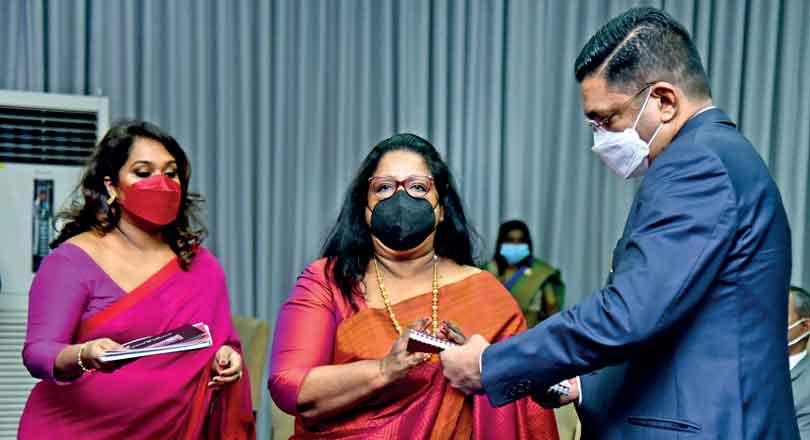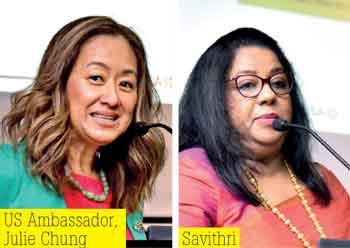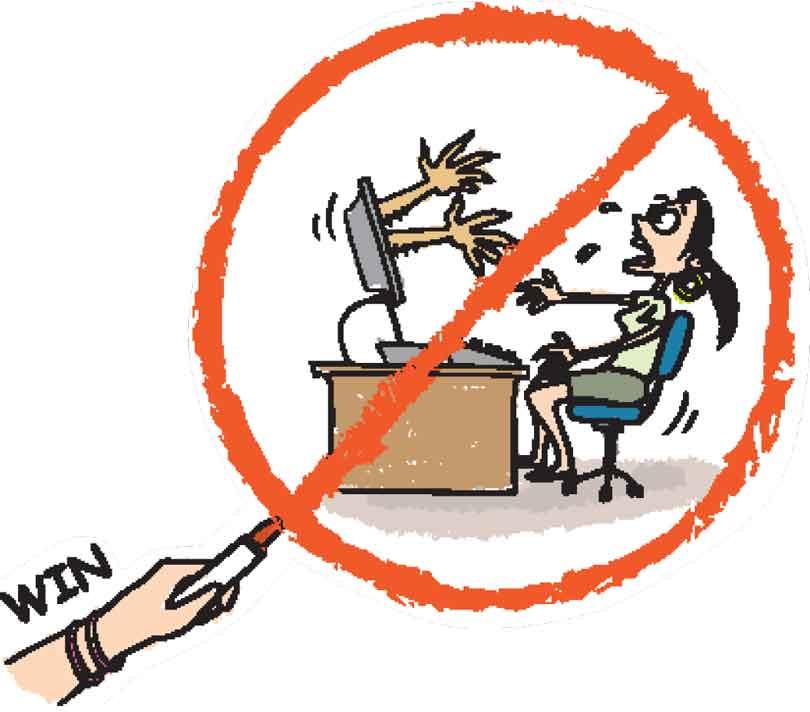Reply To:
Name - Reply Comment
Violence Against Women and Girl in Srilanka

As people move into the digital age, violence against women in the cyber space has been identified as a new form of violence. Online violence or technology facilitated violence against women can be understood as a continuum of offline violence against women and is a form of gender-based violence. Statistics from the Global Gender Gap index indicate that Sri Lanka’s Gender Gap in many respects is below the level of parity. The Global Gender Index for Sri Lanka In 2006 was 0.720 while in 2021 it reduced to 0.670.
Since it’s inception in 1988, Women In Need (WIN) has been working on Gender Based Violence and believes that gender inequality limits choices for women and men and puts a brake on human development. Results of an island wide study to address increasing trends in cyber sexual and gender-based violence in Sri Lanka, WIN recently launched a report on Technology Facilitated Violence Against Women and Girls.
 Speaking at the launch, WIN’s Executive Director Savithri Wijesekera said that WIN’s activities focus to promote a violence free society that values and respects the rights of women and girls. “We have come a long way since our inception in 1988 and faced many challenges along the way. The theme for International Women’s Day this year was Breaking The Bias. This has been one of our biggest challenges and still continue to be. Today, women and girls are facing a new form of abuse, that is technology facilitated abuse. Cyber crime is not just about computers but also about people who commit it, people who are injured and those who work to stop it. This is a social and legal problem and it is fast growing and the law enforcement world is scrambling to tackle the issue. The issue cannot be left to politicians, policymakers and police to solve. We need to address the issue together with police and all stakeholders. It’s important to strengthen the response mechanism and address the lacunae and gaps revealed in the study. The report concludes that tech-facilitated abuse against women and girls is wide spread and growing. Our existing legal framework is not sufficient for complex cases or rapid legal responses. Therefore, tech-facilitated Violence Against women and girls should be extended to the Penal Code offenses.”
Speaking at the launch, WIN’s Executive Director Savithri Wijesekera said that WIN’s activities focus to promote a violence free society that values and respects the rights of women and girls. “We have come a long way since our inception in 1988 and faced many challenges along the way. The theme for International Women’s Day this year was Breaking The Bias. This has been one of our biggest challenges and still continue to be. Today, women and girls are facing a new form of abuse, that is technology facilitated abuse. Cyber crime is not just about computers but also about people who commit it, people who are injured and those who work to stop it. This is a social and legal problem and it is fast growing and the law enforcement world is scrambling to tackle the issue. The issue cannot be left to politicians, policymakers and police to solve. We need to address the issue together with police and all stakeholders. It’s important to strengthen the response mechanism and address the lacunae and gaps revealed in the study. The report concludes that tech-facilitated abuse against women and girls is wide spread and growing. Our existing legal framework is not sufficient for complex cases or rapid legal responses. Therefore, tech-facilitated Violence Against women and girls should be extended to the Penal Code offenses.”
The study included a qualitative component conducted in Colombo, Matara, Anuradhapura, Batticaloa and Jaffna Districts and a National quantitative survey among 1533 participants which included 733 men and 761 women. The survey data revealed that one in five individuals reported knowing of someone who had
edited/doctored/photoshopped images of them shared on the internet as well as intimate pictures or videos of themselves shared on social media.
In her comments, US Ambassador to Sri Lanka Julie Chung opined that for societies to thrive all people must have equal rights, ability to exercise their own voice and freedom from harassment, discrimination and violence. “I’m pleased to be here today because the survey results will bring us one step closer to these important goals. As part of a US supported activity, WIN conducted an island wide study on violence facilitated through technology against women and girls in Sri Lanka. This type of violence was already becoming more prevalent prior to the pandemic but there’s no question that COVID-19 exacerbated both offline and online violence. During lockdowns, Sri Lanka like many other countries including the US saw a spike in domestic violence and abuse and offline violence increasingly spreading to online spaces. With the pandemic changing the world we are living in, violence against women and girls now exist in a much broader context. It could be on our phones, laptops, social media feeds and WhatsApp messages. Violence takes the form of hate speech, online harassment, threats and bullying. The survey found increasing women and girls receiving unwanted sexually explicit content on their phones, receiving phone calls threatening and intimidating women and their families, being blackmailed to perform specific actions often with the threat of sharing intimate photos without consent. The report states nearly one in four respondents said that someone they know have been subjected to online harassment of a sexual nature. The pandemic reduced access to health services in shelters.

The survey data revealed that one in five individuals reported knowing of someone who had edited/doctored/photoshopped images of them shared on the internet as well as intimate pictures or videos of themselves shared on social media.
These gaps likely resulted in an escalation of both physical and tech-facilitated violence and abuse. Given the increase in both offline and online gender based violence and the recent gaps in services there has to be an urgent need more than ever for a holistic, multi-sectoral systemic change that tackles these challenges. If we don’t respond we will witness a gender digital divide. Data is not enough we must take action. Combined with other tools, organizations such as WIN continue to provide timely and ongoing support to victims and survivors of domestic violence and abuse. Despite restrictions in mobility, WIN staff kept their shelters open for women and children during lockdowns. That takes real courage and the US provided care packets to victims and survivors in these shelters. The US also helped WIN to expand its hotline capacity by adding regional calling numbers and making it easier to access. The hotline is widely promoted by the government and service providers and received nearly 3600 in six months. The US Government will continue partnering with the Government of Sri Lanka and grassroots organizations such as WIN to support and address the occurrence of gender based violence in Sri Lanka.”